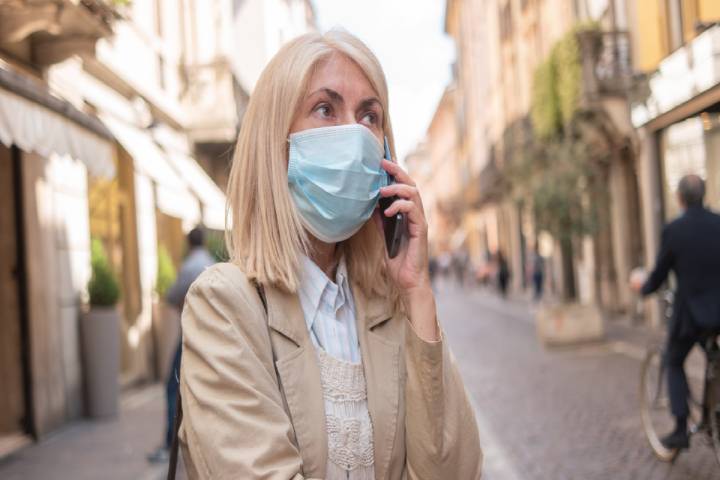Many people often overlook call center services during a Pandemic. However, during the global pandemic, they have proven to be beneficial for their countries, respectively. This is how:
Table of Contents
1. Support Local Businesses
Many call centers have tie-ins with local businesses. In some countries, call centers are run by government-run agencies, while in other countries, they are run by private companies.
Either way, many call centers provide financial and technical support to local businesses, making it possible for them to continue running while at the same time providing customers with information on how to take care of themselves.
For example, if a customer has become ill and needs to go to the doctor but does not have the cash to pay for the bill, the call centers can relay this information to the local medical establishment.
2. Inform and Educate the population
A benefit of call centers during a pandemic is that they can provide many services to the infected population. Many call centers are equipped with various communication tools, including Internet connections and Voice over Internet Protocol (VoIP), to provide information and advice to the residents.
This information can range from basic self-help information such as preparing food and beverages for a family member with an illness to advice on how to disinfect a contaminated object or avoid catching a dangerous disease.
Some centers may also offer free transportation to doctors and other emergencies and information about locating a doctor if one becomes sick or visits a health clinic.
3. Collection of Data
By taking individual calls and routing them through various networks until they are routed to a database. At that point, they are responsible for passing the information along to the people who need it, such as government security bodies and health institutions.
They are good at staying on top of the networks and updating everyone that an outbreak is happening to keep on top of the problem. Here is why people are often called the network of choice for handling calls during a pandemic.
The data collected during a pandemic is crucial because it ties everything together and shows the greatest need. If everyone knew that the pandemic was on the rise, they could all prepare for the worst, and by knowing where they can place their stock early, they can better prepare themselves for a shortage and an outbreak.
This is why most call center operators during a pandemic will stress the importance of staying connected throughout the outbreak and collecting all available data. With the data in hand, they can determine who needs to be updated and show the greatest need for supplies.
4. Provide Employment
Call centers have several different ways to recruit additional staff to help deal with an outbreak. The simplest way is through typical marketing techniques like the use of mass media.
Many marketing campaigns are centered around pandemic preparation so that consumers will be better informed and have a better understanding of what they can do to stay healthy during an outbreak.
Those willing to do the grunt work – such as answering phones, sorting out returning phone calls, running the phones when patients aren’t available – make good money from doing this kind of work.
5. Help patients get emergency medical support.
Virtual call centers act as the link between the infected person/s and the medical professionals. They begin by assigning a trained representative to the case. A representative will take the information and help the patient find an appointment at the nearest quarantine facility.
Still, they can also ensure that the patient receives the appropriate treatment from a reputable doctor or hospital.
If a patient cannot travel to an isolated center to receive proper care, the call center will help you stay in touch with your family and friends.
A live person will take the information and arrange for a ride to the nearest hospital. This will prevent the infected person/s’ family from becoming worried while they cannot travel home and know what has happened to their loved one and whether or not the patient is feeling better.
6. Hospital Call Centers
Most major hospitals have their call centers staffed by trained medical professionals who are always ready to take your call. This means that all needs will be taken seriously and that doctors or nurses will listen to anyone when you have a question or concerning their health and those around them.
Doctors and nurses who hear what patients are saying can immediately use their medical training to diagnose a problem and give the patient the appropriate treatment.
7. Rapid Responders
Each virtual call center has its policy on how its callers should be treated, strictly enforced. Most call centers require callers to speak to a live agent, even if the caller is talking to a voicemail box.
A live operator will be able to listen to a sick call and immediately intelligently assess the situation. If the caller does not have an immediate need for care, the operator may try to sell insurance to the sick person by offering different options or redirecting the call to a sales rep if that is more helpful.
Conclusion
Virtual Call Centers have proven their worth in the fight against the pandemic. By having staff members ready to take each call with the added context provided by the computer, the call center can more effectively handle these high volumes and offer help where needed.
Babel Force
Related posts
Leave a Reply Cancel reply
Hot Topics
Categories
- Ads (5)
- Animes (25)
- Artificial Intelligence (AI) (35)
- Augmented Reality (AR) (10)
- Automotive (9)
- Bitcoin (16)
- Blockchain (24)
- Business (244)
- Business Intelligence (3)
- Cloud Computing (23)
- Computer (128)
- Concrete Technology (1)
- Cryptocurrency (10)
- Cybersecurity (42)
- Data Science (9)
- Database (4)
- DevOps (6)
- Digital Marketing (76)
- Digital Workplace (14)
- Ecommerce (1)
- Education (28)
- Electric Vehicle (EV) (1)
- Electronics & Hardware (17)
- Entertainment (42)
- Fabrication (3)
- FAQ's (1)
- Finance & Marketing (47)
- Gadgets (35)
- Games (8)
- Gear (29)
- HTTPS (1)
- Industry (46)
- Information Technology (90)
- Internet (413)
- Internet of Things (IoT) (41)
- Job (25)
- Machine Learning (6)
- Marketing (92)
- Mobile Apps (21)
- Movies (11)
- Natural Language Processing (6)
- News & Trends (109)
- Programming (4)
- Science & Technology (235)
- Security (81)
- SEO (56)
- Services (36)
- Social Media (73)
- Software (99)
- Sports (1)
- Technology (306)
- Telecom (6)
- TikTok (5)
- Tours & Travels (9)
- Uncategorized (11)
- Virtual Reality (VR) (7)
- VoIP (4)
- Web Technology (42)
- Workforce (17)
- Workspace (6)



Stay connected